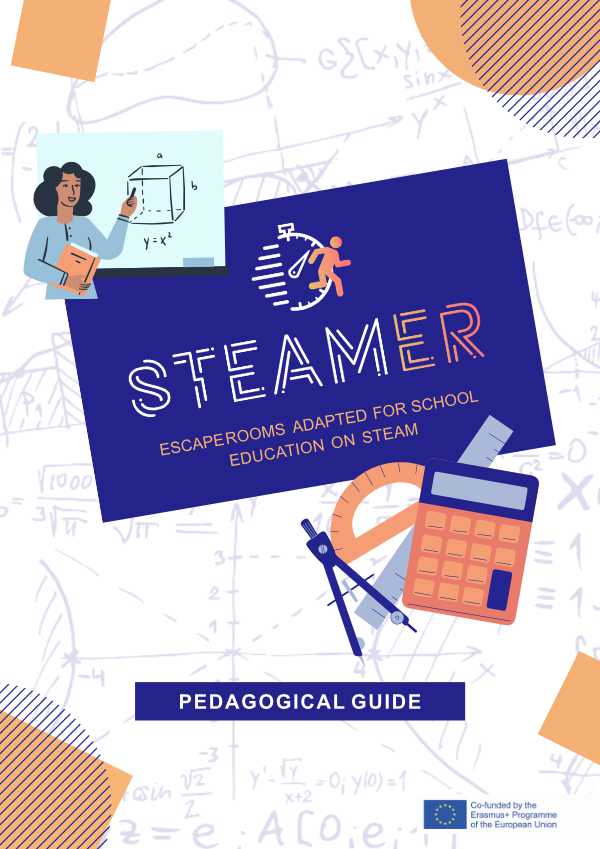Conclusion
Table of Contents

Looking for the booklet version of this guide to read offline or print ?
Escape Rooms are developing fast around the world and trending as an innovative, immersing experience. They attract a vast public of all ages and all horizons. Their versatile concept inspired us to explore their pedagogical potential and to use them in an educative context to boost STEAM education.
Indeed, Escape rooms are an incredible tool that has a lot of potential for education through game-based-learning. They offer a wide range of gamified possibilities for education, in all topics imaginable but particularly for STEAM education, and they stimulate a lot of 21rst century’s essential soft skills that are targeted at school and needed in the professional world, such as teamwork, communication, time management, critical thinking, problem-solving, out-of-the-box thinking, organisation skills, inquiry-based learning, active learning, etc.
They also stimulate different profiles of students and engage them more in the STEAM subjects by respecting the four freedom of play while still bringing educative content to them. Thanks to their multiple game-modes, they are also an ideal tool for inclusion in education.
As we have seen, there are many different kinds of Escape Rooms and endless possibilities of uses, themes, and configurations. In this manual, we concentrated on pedagogical Escape Rooms, which are usually coming in the form of Escape boxes, breakout boxes, or escape books as these are the most practical to install and easy-to-use in a pedagogical context.
While escape rooms need a lot of time to be prepared, they can boost the interest of the pupils in STEAM subjects, which will have a positive long-term impact on the STEAM results and be reused later on, which makes them a wonderful educational investment.
This guide covers the structure, preparation, design, exploitation, and inclusion in escape rooms. In the following outputs, you will be able to apply all the advice given in this guide directly by making your own escape room. Thanks to their natural versatility, they will be able to support any kind of school material for a wide age range.
The escape room creation guide and the e-learning module will help you step-by-step in the creation of your escape room, while the STEAMER generator will help with the scenario and characters that your escape room might need. Scenario and lesson packages, as well as an implementation practice guide, will also be available so that you have all the tools necessary to build an immersive, game-based educative experience for your pupils.
